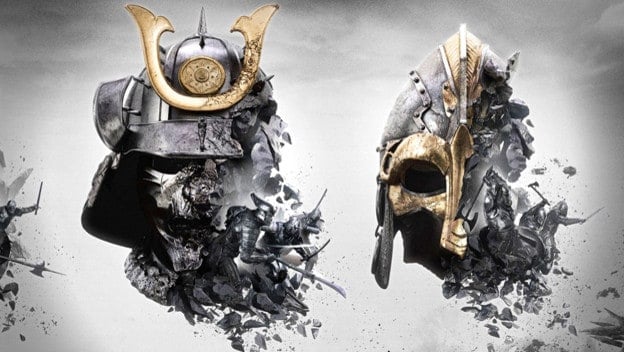When it comes to For Honor , Ubisoft’s hack-and-slash that will put you against other virtual or actual opponents in intense duels, it seems like we just can’t rely on any advance information. Every step of the way, the story keeps changing. Promises about what the game will and won’t be keep being broken. The most recent of which being that For Honor will have offline and online experiences. That’s now been thrown aside, and the entire game will require an online connection. The question is, are these broken promises a big deal?
After all, games change a lot during development. Developers might find something that works better or worse. Problems may arise with original visions, and revisions are needed to make them more possible. Could that be the case with For Honor ? In this instance, probably not. Rather, this broken promise could detrimentally effect gameplay. We’ve seen what always-online experiences do to games, particularly Ubisoft titles, before. And we know companies backtracking on promises can be particularly brutal betrayals of trust.
The problem here is that Ubisoft has been promising an offline experience in For Honor for so long. From the very outset, we’d been told it has offline and online experiences. Jason VandenBerghe, an Ubisoft Montreal creative director, told GameSpot , “We built the campaign so that if you bought the game just for that, that you would be satisfied even if you never went online and played multiplayer. It’s intended to be a full experience.” If you look on product pages, say on the Microsoft Store or Steam , it mentions the offline campaign. Now, the elements of progression are hosted online and shared across both the single and multiplayer modes. That’s quite a thing to spring on people when a game’s release date is only two months away. Especially when nothing has been said to even hint at this before.
It reeks of DRM. We know how well that’s worked for games before. Titles like Assassin’s Creed II, Driver: San Francisco, Diablo III, SimCity, Hitman, and Quantum Break all had always-online requirements. What did this lead to? Situations where server problems and internet issues kept you from being able to play a game, even if you wanted to do so alone in a single player campaign. It’s almost like The Crew , another recent Ubisoft release, all over again. Despite there being a solo campaign, which many people played exclusively, it ended up requiring subscriptions like Xbox Live Gold and PlayStation Plus and being always online to offer the combined single and multiplayer world. The expense? If there were internet issues or servers down, you weren’t going to have a good time. Steep, an open-world winter sports game, is always online for that same reason. And what happens if you want to enjoy the game alone? You can’t. Your performance may even suffer, due to other people invading and crashing your frame rate with their antics.

But then, maybe we should have expected this sort of behavior from For Honor and Ubisoft. When it was announced at E3 2015, local co-op was hyped up as a key feature. We kept hearing how important split-screen, offline co-op was the to the experience. It was even referred to as a “key feature” and “super required.” We shouldn’t have believed things were settled after it was tossed aside so easily.
For Honor’ s broken promise is a big deal, especially since it’s only just been sprung on us. The always-online requirement could end up detrimentally impacting our gameplay. Ubisoft needs to start providing details of exactly what this does and doesn’t mean for people interested in the game. Let’s hope that it, at best, is a means of saving progression across modes, and not an indication that we’d need a subscription just to enjoy the single player campaign.
